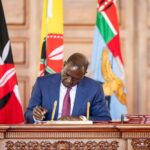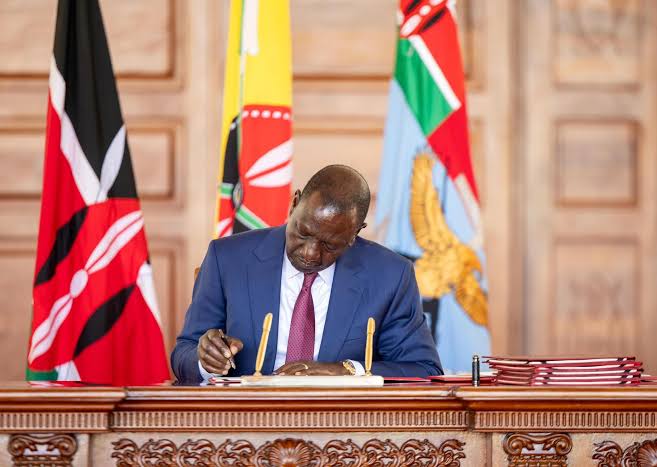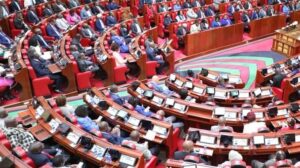A major setback has hit President William Ruto’s administration after the High Court ruled against one of his key Executive Orders that sought to alter how state corporations hire and manage their employees.
The decision, delivered by Justice Lawrence Mugambi, declared the President’s directive unconstitutional and invalid, striking down the changes he had introduced to control recruitment and management in public institutions.
This ruling followed a petition filed by the Law Society of Kenya (LSK) earlier in 2024, challenging what it described as a clear violation of the Constitution and an attempt to undermine the authority of the Public Service Commission (PSC).
In its petition, the LSK argued that the President’s Executive Order No. 3 of 2024 had unlawfully taken powers away from the PSC and handed them to Cabinet Secretaries and the State Corporations Advisory Committee.
The society explained that under the Constitution, it is only the PSC that has the power to regulate employment within the public service.
However, the new order required state corporations to seek approval from the respective Cabinet Secretaries and the Advisory Committee for every recruitment, transfer, appointment, and change in terms of service. According to the LSK, this opened the door for political interference and favoritism, eroding the principles of merit and professionalism that should govern public hiring.
The contested guidelines were published in Gazette Notice No. 6265 on May 24, 2024. They sought to give Cabinet Secretaries and the Advisory Committee authority to control staff appointments and conditions of service in state corporations.
LSK maintained that such powers clearly belonged to the PSC and could not be transferred or delegated without constitutional backing.
The society further urged the court to confirm that state corporations and public universities fall under the oversight of the PSC to prevent future manipulation of the public recruitment system.
When delivering his judgment, Justice Mugambi emphasized that the PSC’s role in the public service is protected by Article 234 of the Constitution, which grants it exclusive powers to establish offices, make appointments, and determine terms of service.
He noted that even the President cannot override or reassign these duties through an Executive Order, as doing so would amount to breaching the separation of powers and constitutional independence of commissions.
The judge further explained that the Constitution only allows the PSC to delegate its functions in a manner clearly stated under Article 234 (5), and not through political directives.
Justice Mugambi also pointed out that decisions affecting salaries and benefits for public officers must involve the Salaries and Remuneration Commission (SRC).
He found that Ruto’s Executive Order had ignored this requirement, making the process flawed and unconstitutional.
As a result, the court quashed the entire order and all guidelines issued under it, declaring that any appointments or terms of service arising from the directive were null and void.
The ruling is seen as a strong message reinforcing the independence of constitutional commissions and limiting presidential powers in public administration. It also restores the PSC’s full control over public service management, ensuring that appointments in state corporations are based on merit rather than political connections.
The decision adds to growing legal challenges facing the Kenya Kwanza administration, as courts continue to scrutinize the constitutionality of several executive decisions made since President Ruto took office.





















Add Comment